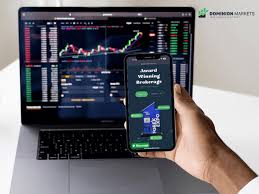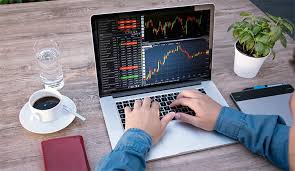
Understanding Forex Trading Brokers
The foreign exchange (Forex) market is one of the largest and most liquid markets in the world, with a daily trading volume that exceeds $6 trillion. A crucial component of this market is the Forex trading broker, a financial intermediary that connects retail traders with the market. Choosing the right broker can significantly influence your trading success. In this article, we will explore the different types of Forex brokers, their roles, and vital considerations for selecting one, all while recommending forex trading broker ex-zar.com as a viable trading option.
What is a Forex Trading Broker?
A Forex trading broker acts as a mediator between traders and the interbank market. Brokers facilitate the buying and selling of currency pairs, providing traders with access to the market’s liquidity. They offer trading platforms that allow traders to execute trades, analyze price charts, and use various trading tools. Brokers typically earn money through the spreads they charge on trades or through commission fees.
Types of Forex Brokers
Understanding the different types of Forex brokers is essential for any trader. Here are the primary categories:
1. Market Maker Brokers
Market maker brokers create their own market. They assume the risk of trade positions and usually offer fixed spreads. Their liquidity is often derived from their own capital, and they may provide less favorable pricing than other brokers because they profit from the difference between buying and selling prices.
2. ECN Brokers

Electronic Communication Network (ECN) brokers connect traders directly to the interbank market. They provide access to real market spreads and are known for offering variable spreads and fast execution. ECN brokers charge a commission fee on each trade but provide greater transparency in pricing.
3. STP Brokers
Straight Through Processing (STP) brokers send orders directly to liquidity providers without manual intervention. STP brokers can offer either fixed or variable spreads and are known for their fast execution speeds.
Key Considerations When Choosing a Forex Broker
Selecting the right Forex broker can be the difference between success and failure in trading. Here are some fundamental factors to consider:
1. Regulation
It’s crucial to choose a broker that is regulated by a reputable authority. Regulatory bodies, such as the Financial Conduct Authority (FCA) in the UK or the Commodity Futures Trading Commission (CFTC) in the USA, ensure that brokers adhere to strict standards to protect traders’ interests.
2. Trading Platforms

The trading platform is where you will conduct all your trading activities. It should be user-friendly, stable, and equipped with essential tools for analysis and order execution. Popular platforms like MetaTrader 4 (MT4) and MetaTrader 5 (MT5) are often preferred due to their extensive functionalities.
3. Spreads and Fees
Brokers charge different spreads and fees, which can impact your profitability. Compare the trading costs among various brokers and look for transparent pricing structures.
4. Customer Support
Efficient customer support is vital, especially for novice traders who may have questions or issues. Consider brokers that offer multiple channels of support and have a reputation for responsiveness.
5. Account Types
Many brokers offer various account types tailored to different trading styles and capital sizes. Choose a broker that provides an account type that matches your trading strategy.
Conclusion
In the world of Forex trading, brokers play a critical role in facilitating trades and providing traders with the necessary tools and resources. Understanding the types of brokers available and the factors to consider when selecting one can greatly improve your trading experience. Always conduct thorough research and consider platforms like ex-zar.com that prioritize transparency and cater to a wide range of traders. By making informed choices, you can enhance your potential for success in the dynamic Forex market.




